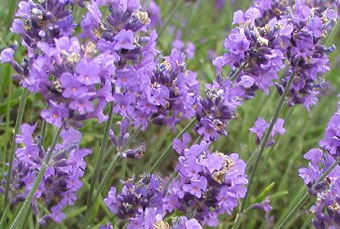Tea Tree with botanical name Melaleuca alternifolia, belonging to myrtaceae family is a shrub native to Australia. The tree grows to reach nearly 20 feet in height. The narrow soft leaves are used to extract oil which is commonly marketed as Tea Tree Essentail Oil. The oil is known to have various health benefits, and has been used by native Australians for centuries.
Learning from the natives, the Australian soldiers are known to have used the Tea Tree oil as a first aid during WW II. When scientific research conducted by Arthur Penfold proved Tea Tree oil’s antimicrobial, antibacterial, anti-fungal and anti- inflammatory properties, it gained popularity all over the world. It is proved that Tea Tree oil is much better than standard antiseptic bactericide, carbolic acid, as it can be 12 times more effective.
Today tea tree oil is available as a common over-the-counter product in Australia, North America and Europe, where it is effectively used in treatment of various ailments. It is sold in dark opaque bottles, since exposure to light is known to affect its potency.
Health Benefits of Tea Tree
 Tea Tree is known to poisonous when taken orally, therefore the health benefits of the herb are realized through extracting its oil which is applied externally. The Australian aborigines used crushed leaves of Tea Tree as poultice to treat skin ailments for thousands of years. Inhaling the vapors emanating the crushed leaves of tea tree is good remedy for cold and coughs.
Tea Tree is known to poisonous when taken orally, therefore the health benefits of the herb are realized through extracting its oil which is applied externally. The Australian aborigines used crushed leaves of Tea Tree as poultice to treat skin ailments for thousands of years. Inhaling the vapors emanating the crushed leaves of tea tree is good remedy for cold and coughs.
Laboratory studies have now proved its effectiveness in killing bacteria with high resistive powers to standard medicines and also to methicillin-resistant Staphylococcus Aureus, which is a dangerous staph infection which does not respond to even strong antibiotics.
Cosmetic industry uses tea tree oils in its products like after shave, first aid, mouthwash, gels, soaps, lotions and creams which can treat skin infections, minor cuts and wounds effectively. It is also used in production of household cleaning products.
Tea tree oil is rich in terpene hydrocarbons, which is a volatile with pleasant aroma which makes it an indispensable ingredient of aromatherapy. The medicinal properties of tea tree oil has seen its extensive use in treating:
- Colds
- Coughs
- Skin rashes
- Itching
- Dandruff
- Head lice
- Blisters
- Acne
- Toe nail fungus
- Athlete’s foot
- Minor burns
- Insect bites
- Scabies
- Warts
Care has to be taken to avoid tea tree oil from being taken internally and from touching the eyes. If ingested tea tree oil is known to cause skin rash, severe abdominal pain, diarrhea, confusion, impairment of immunity and even coma in some instances. Tea tree oil was observed to cause breast enlargement in young men though there is no proof to substantiate this claim.
Treating Canker Sores and Laryngitis
Boil the leaves of tea tree in water and steep it for few minutes. Rinse the mouth thoroughly to get relief from canker sores and laryngitis. If fresh leaves are not available, few drops of tea tree oil can be added to a cup of warm water which can be used to gargle.
Cold and Cough
Adding tea tree oil to the boiling water and inhaling its steam will provide quick relief from congestion caused due to cold and eases coughing.
Skin Ailments
Add a few drops of tea tree oil to bathing water to get rid of various skin infections.



